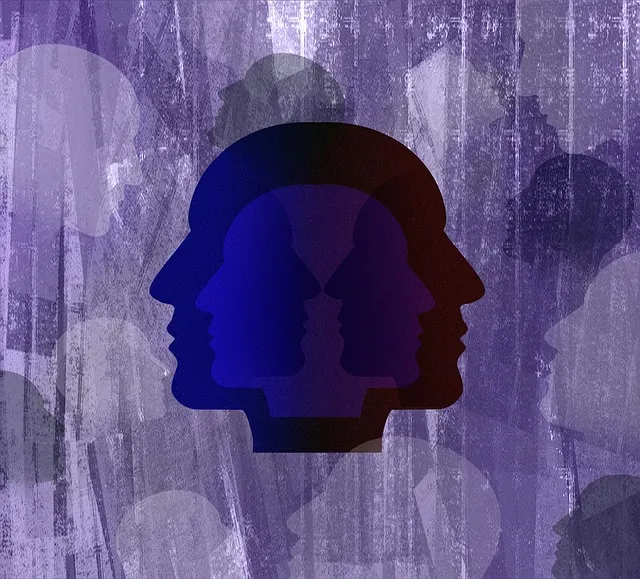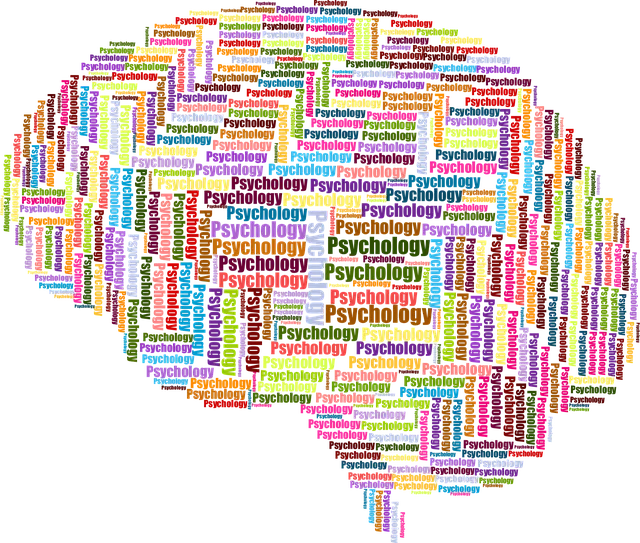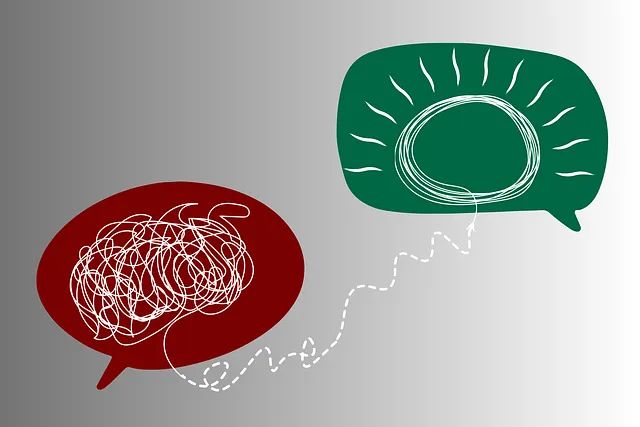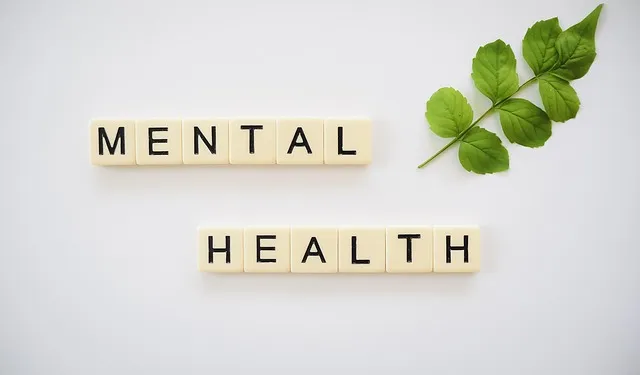Golden Kaiser Permanente behavioral health providers emphasize the importance of understanding mood disorders for effective regulation. Conditions like depression and anxiety deeply impact well-being, with persistent sadness, hopelessness, and worry often accompanied by physical symptoms. Early recognition is key to preventing symptom exacerbation. Public awareness campaigns reduce mental health stigma and encourage support-seeking. Emotional Intelligence integration fosters self-awareness, empathy, healthier coping, stronger relationships, and improved mood regulation. Cognitive Behavioral Techniques, Self-Care Routine Development, mindfulness, and meditation are powerful tools advocated by Golden Kaiser Permanente behavioral health providers for daily mood management, stress reduction, and emotional resilience in a fast-paced world. Healthy lifestyle choices, social support, and therapy groups are integral parts of fostering overall mental wellness, offering buffer against stress and promoting emotional healing.
Explore effective mood regulation strategies to enhance your well-being. This comprehensive guide delves into various techniques, backed by insights from leading behavioral health providers at Kaiser Permanente. From understanding the foundations of mood disorders to powerful cognitive-behavioral therapies, mindfulness practices, lifestyle changes, and the importance of social support, discover holistic approaches to achieve emotional balance. Implement these strategies for improved mental resilience and overall health.
- Understanding Mood Disorders: A Foundation for Strategies
- Cognitive Behavioral Techniques: Golden Rules from Kaiser Permanente
- Mindfulness and Meditation Practices for Daily Regulation
- Lifestyle Changes: Nutrition, Exercise, Sleep for Emotional Balance
- Social Support and Therapy: Building a Network of Help
Understanding Mood Disorders: A Foundation for Strategies

Understanding Mood Disorders is a crucial foundation for implementing effective mood regulation strategies. According to Golden Kaiser Permanente behavioral health providers, mood disorders such as depression and anxiety significantly impact an individual’s overall well-being, daily functioning, and quality of life. These disorders are characterized by persistent feelings of sadness, hopelessness, or excessive worry, often accompanied by physical symptoms like changes in sleep patterns and appetite. Recognizing these signs early is vital for seeking appropriate help, which can prevent the exacerbation of symptoms and promote recovery.
Public Awareness Campaigns play a pivotal role in breaking down the stigma surrounding mental health issues, encouraging individuals to openly discuss their struggles, and seek professional support. Moreover, integrating practices like Emotional Intelligence into daily routines can empower people to better understand and manage their emotions. By fostering self-awareness and empathy towards others, one can develop healthier coping mechanisms, enhance relationships, and ultimately, improve mood regulation capabilities.
Cognitive Behavioral Techniques: Golden Rules from Kaiser Permanente

Cognitive Behavioral Techniques, often hailed as Golden Rules by Kaiser Permanente behavioral health providers, offer a powerful set of tools for mood regulation. These evidence-based practices focus on identifying and challenging negative thought patterns and behaviors that contribute to emotional distress. By learning to recognize triggers and modifying one’s responses, individuals can gain greater control over their emotions.
Emotional Intelligence plays a crucial role in this process, enabling self-awareness and understanding of others’ perspectives. Incorporating Self-Care Routine Development for Better Mental Health is another vital strategy, ensuring individuals prioritize activities that promote well-being. This proactive approach to mental health can significantly reduce the risk of Depression Prevention, fostering resilience and emotional stability.
Mindfulness and Meditation Practices for Daily Regulation

In today’s fast-paced world, mindfulness and meditation practices have emerged as powerful tools for daily mood regulation, offered by Golden Kaiser Permanente behavioral health providers. These ancient techniques, now backed by modern research, enable folks to navigate life’s challenges with greater equanimity. By focusing on the present moment and cultivating non-judgmental awareness, individuals can reduce stress levels and enhance emotional resilience, fostering a symphony of mental balance within the bustling landscape of daily life.
The Mind Over Matter principles, coupled with Compassion Cultivation Practices, provide effective strategies for managing stress. Stress Management Workshops Organization offers structured programs that guide participants through mindfulness exercises tailored to quiet the mind, soothe anxiety, and foster a sense of calm. These practices are not merely passive; they empower individuals to actively engage with their thoughts and emotions, transforming them from pesky remnants into valuable insights. Through regular meditation, folks can harness the power within to revolutionize their emotional responses, creating a lasting positive impact on their overall well-being.
Lifestyle Changes: Nutrition, Exercise, Sleep for Emotional Balance

Maintaining a balanced mood is closely tied to adopting healthy lifestyle habits, and Golden Kaiser Permanente behavioral health providers emphasize the power of nutrition, exercise, and sleep in achieving emotional well-being. A well-rounded diet rich in fruits, vegetables, whole grains, and lean proteins can significantly impact mental health. According to research, specific nutrients like omega-3 fatty acids and vitamin D play a crucial role in regulating emotions and reducing symptoms of depression and anxiety.
Regular physical activity is another powerful tool for mood regulation. Exercise releases endorphins, which are natural mood lifters, and promotes the growth of new brain cells, enhancing cognitive function and emotional resilience. Integrating mindfulness meditation into daily routines can also aid in stress reduction and emotional healing processes. These lifestyle changes, often supported by Mental Illness Stigma Reduction Efforts, contribute to overall mental wellness and can be key components of any comprehensive Emotional Healing Processes plan.
Social Support and Therapy: Building a Network of Help

Social support is a cornerstone of emotional well-being, and building a network of supportive individuals can significantly aid in mood regulation. Golden Kaiser Permanente behavioral health providers emphasize the power of connections when it comes to navigating mental health challenges. Whether through therapy groups or personal relationships, having people to lean on during tough times offers a sense of belonging and validation. This support system serves as a buffer against stress, promoting emotional resilience.
By fostering strong social bonds, individuals can better manage their mental health. Therapy sessions facilitate the creation of this network by providing tools for effective communication and conflict resolution. Through counseling, one learns to recognize healthy relationships and develop boundaries, ensuring that support is received from those who genuinely care. Moreover, sharing experiences and emotions with understanding listeners helps in coping with stress, anxiety, or depression, thereby fostering a positive mindset and preventing burnout.
Mood regulation is a multifaceted approach that integrates cognitive behavioral techniques, mindfulness practices, lifestyle changes, and social support. By understanding mood disorders and leveraging evidence-based strategies like those offered by Kaiser Permanente’s behavioral health providers, individuals can gain significant control over their emotional well-being. Incorporating cognitive behavioral therapy, mindfulness meditation, nutritious diets, regular exercise, adequate sleep, and strong social connections creates a holistic framework for managing and improving mood. These strategies empower individuals to navigate life’s challenges with resilience and promote long-term emotional balance.






